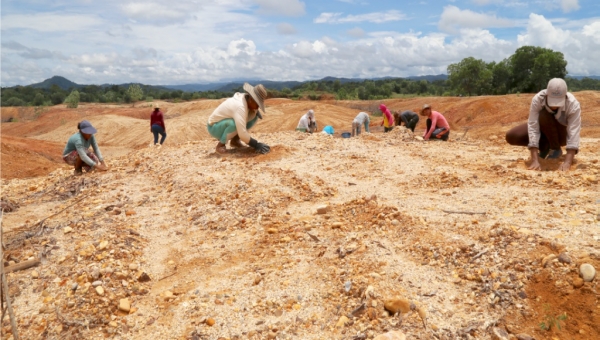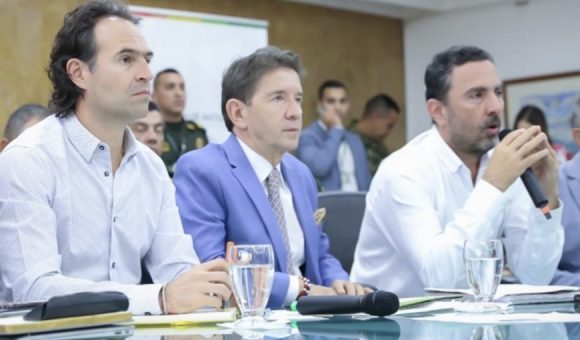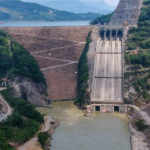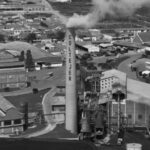USAID Helping Antioquia’s Poor to Recover Lands Wrecked by Irresponsible Miners

The U.S. Agency for International Development (USAID) announced October 31 that it is helping Afro-Colombian and indigenous communities in El Bagre, Antioquia, to restore lands to safe and productive use following environmental destruction left by irresponsible miners.
In the COP$1.4 billion (US$470,000) USAID-sponsored project, 90 economically disadvantaged families – all members of the community councils of Puerto Claver and Los Mellizos, Antioquia – are planting Acacia mangium seedlings and native-tree seedlings in areas that had been wrecked by destructive mining.
The project aims to plant 327,745 trees — 90% Acacia mangium and 10% native species — according to USAID.
Each week, six groups of 30 people plant trees, providing “income opportunities to the greatest number of beneficiaries,” according to the agency.
In addition to planting, the families also support the tree-nursery operation and perform the hole-digging.
“The desert soils left by [irresponsible] mining in the village of Puerto Claver, municipality of El Bagre, Antioquia, will begin to grow again in the hands of families which for years lived on the little left by the informal exploiters,” according to USAID.
“These activities are part of the rehabilitation project of 295 hectares degraded by the informal mining in the corregimiento of Puerto Claver, which USAID supports through its ‘Oro Legal’ (legal gold) program, together with the mayor of the municipality of El Bagre and the Community Council of Puerto Claver (Afroclaver).
“Oro Legal will support the establishment of the plantations through the first maintenance [cycle], the fourth month of planting the seedlings, and the implementation of a beekeeping project, which will include the establishment of 200 hives.”
The “Afroclaver” community council, which ensures the protection of rights groups of the Afro-Colombian community, settled more than three decades ago in the township of Puerto Claver.
“This population did not have its own territory, until the mayor of El Bagre certified their possession,” according to USAID. Meanwhile, Colombia’s national land agency is working to finalize the community’s legal title to the lands.
To date, USAID’s “Oro Legal” program has supported soil-rehabilitation projects (in areas degraded by illegal mining) covering 1,989 hectares — 1,141 in Bajo Cauca, Antioquia, and 848 hectares in the department of Chocó. The goal is to recover 11,500 hectares by 2020, according to the agency.
















